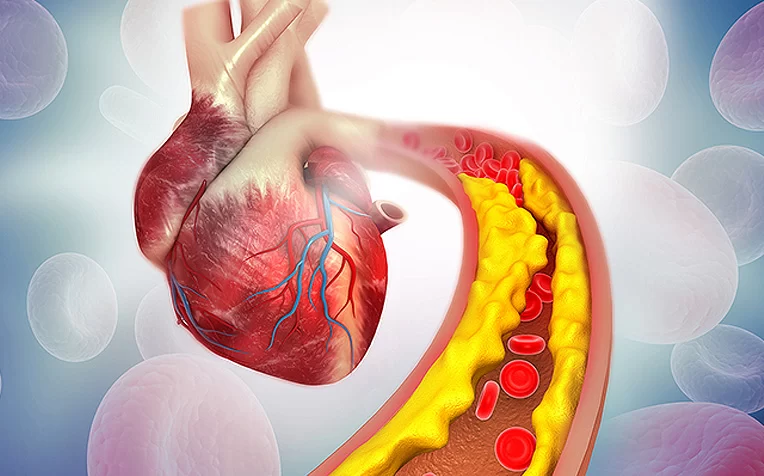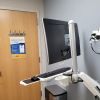The Vital Role of a Heart Specialist in Managing Atherosclerosis and Preventing Heart Disease
- What is Atherosclerosis?
- Why a Heart Specialist is Crucial in Atherosclerosis Management
- Treatment Options for Atherosclerosis
- Preventing Atherosclerosis: Tips from Experts
- Real-life Case Studies: How Heart Specialists Make a Difference
- Final Thoughts: Take Control of Your Heart Health
1. What is Atherosclerosis?
Atherosclerosis is a condition where plaque, made up of fats, cholesterol, and other substances, builds up in the arteries, causing them to harden and narrow. This process restricts blood flow and increases the risk of heart attack, stroke, and other cardiovascular diseases. It’s a progressive condition that often develops without noticeable symptoms until a significant blockage occurs. Early detection and management are crucial to preventing severe complications, which is where a heart specialist plays a pivotal role.
2. Why a Heart Specialist is Crucial in Atherosclerosis Management
Heart specialists, or cardiologists, are trained to diagnose and treat cardiovascular conditions such as atherosclerosis. They have the expertise to assess the severity of plaque buildup and determine the most appropriate treatment plan based on the patient's overall health and specific condition. Cardiologists use advanced diagnostic tools like blood tests, imaging techniques (such as ultrasound or CT scans), and physical exams to monitor artery health and track disease progression.
Moreover, a heart specialist helps in managing risk factors associated with atherosclerosis, such as high blood pressure, high cholesterol, and diabetes. By addressing these underlying conditions, a cardiologist can help slow or even reverse the effects of atherosclerosis, improving the patient's heart health in the long run.
3. Treatment Options for Atherosclerosis
Once diagnosed with atherosclerosis, the treatment options vary depending on the severity of the disease. Heart specialists typically recommend a combination of lifestyle changes and medical treatments to manage the condition effectively.
- Lifestyle Modifications: The first step in treating atherosclerosis is adopting a heart-healthy lifestyle, which includes a balanced diet, regular exercise, smoking cessation, and stress management. These changes help lower cholesterol, reduce blood pressure, and improve blood circulation.
- Medications: Statins and other cholesterol-lowering drugs are commonly prescribed to manage plaque buildup. Blood thinners, blood pressure medications, and drugs to control diabetes are also often part of the treatment regimen.
- Interventional Procedures: In more severe cases, procedures such as angioplasty or stenting may be required to open up blocked arteries. In extreme cases, coronary artery bypass surgery (CABG) may be necessary to restore normal blood flow to the heart.
Heart specialists determine the most suitable treatment plan based on the patient’s unique situation, aiming to minimize the risks of cardiovascular events and improve the patient’s quality of life.
4. Preventing Atherosclerosis: Tips from Experts
Prevention is always better than treatment, and a heart specialist plays a critical role in helping individuals reduce their risk of developing atherosclerosis. Some of the most effective preventive strategies include:
- Maintaining a Healthy Diet: Eating a diet rich in fruits, vegetables, whole grains, and healthy fats (like those found in fish and nuts) helps reduce cholesterol levels and promotes heart health.
- Regular Exercise: Cardiovascular exercises, such as walking, running, cycling, and swimming, strengthen the heart and improve blood circulation, helping to prevent plaque buildup in the arteries.
- Controlling Blood Pressure and Cholesterol: Monitoring blood pressure and cholesterol levels regularly and taking necessary steps to keep them within a healthy range can prevent the progression of atherosclerosis.
- Stress Management: Chronic stress can contribute to heart disease. Techniques like meditation, yoga, and mindfulness can help manage stress and promote heart health.
By following these recommendations and working with a heart specialist, individuals can significantly reduce their risk of atherosclerosis and maintain long-term cardiovascular health.
5. Real-life Case Studies: How Heart Specialists Make a Difference
Consider the story of John, a 55-year-old man who was diagnosed with early-stage atherosclerosis. Despite having a family history of heart disease, John had no noticeable symptoms. His cardiologist detected the condition early through regular screenings and recommended a combination of medication, lifestyle changes, and regular follow-ups.
Over the course of a year, John made significant lifestyle changes, including quitting smoking, adopting a Mediterranean diet, and exercising regularly. His cholesterol levels dropped, and his blood pressure became more manageable. His heart specialist continued to monitor his progress, adjusting treatment as necessary, and today, John is living a healthier life with a significantly reduced risk of heart attack or stroke.
John's case highlights the importance of seeing a heart specialist early. Regular visits to a cardiologist can make all the difference in managing atherosclerosis and preventing serious cardiovascular events.
6. Final Thoughts: Take Control of Your Heart Health
When it comes to managing atherosclerosis, early intervention and ongoing care from a heart specialist are crucial. Cardiologists are essential partners in preventing and managing heart disease, providing tailored treatment plans and preventive strategies that can significantly improve cardiovascular health. By taking proactive steps and consulting with a heart specialist, you can prevent the progression of atherosclerosis and lead a healthier, longer life.
If you're concerned about your heart health or want to learn more about managing atherosclerosis, consider scheduling an appointment with a heart specialist. Don't wait for symptoms to appear—take control of your health today for a better tomorrow.





















